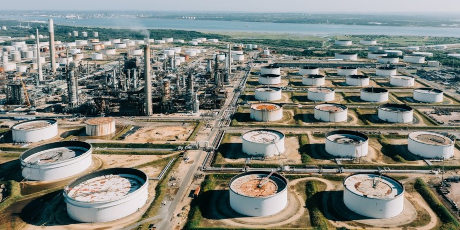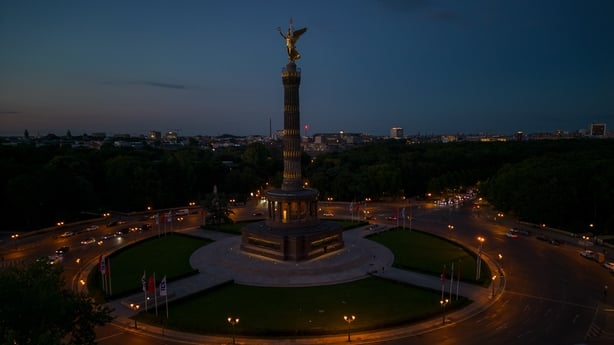7 energy saving measures Ireland could take right now 15 Sep 2022

Analysis: Germany has introduced national energy saving rules and Ireland can learn from them in the face of a serious energy crisis - Dr. Paul Deane, Senior Research Fellow, Energy Policy and Modelling Group, MaREI Centre/ERI
We're facing into a challenging winter in Ireland, with rising energy costs, supply issues and questions around energy security. In Germany, the government has introduced binding measures to protect energy supply and curb usage of gas. Buildings and monuments will no longer be illuminated for aesthetic purposes, illuminating advertising has to be switched off after 10pm, while temperatures in the halls and corridors of public buildings will be lowered to maximum 19 degrees. In October, a second set of longer-term rules will come into force and apply for two years. Could the pragmatic measures being taken in Germany work for us in Ireland?
""If we step back and look at wider society, we are heading into a very deep and serious energy crisis", says Dr Paul Deane , research fellow at the MaREI Centre for Marine and Renewable Energy and the Environmental Research Institute at UCC. "We're not connected to Russia by pipelines, but we're connected via price. That's where we feel the impact.
"Our massive reliance on natural gas and on fossil fuels in Ireland, the cost of that reliance is reflected in the price you're paying at the moment. We're spending about €1million every hour in Ireland on importing oil, gas and coal. For a country that's so rich in renewable resources and such smart people, that’s a really terrible situation to be in. Hopefully things will will be OK, but in many ways you have to plan for the worst and hope for the best".
Energy saving measures in Government buildings
While the impact of energy-saving measures in government buildings would be "relatively small," the message it sends out in terms of leadership is important, he says. "I think the Germans are taking a very pragmatic approach and in Ireland we need to take a very pragmatic approach as well. Optics matter a lot, so it's really important that there's leadership from the top. It would be very important that our government really leads by example, demonstrating by its reduced use of energy that they're taking this crisis very seriously."
This could come in the form of reduced lighting usage and turning down the thermostats in Leinster House to 18 degrees "like we're asking a lot of families around the country to do," says Deane. "Reduced car travel coming in and out of Leinster House as well, in terms of showing flexibility about how they how they get in and out to work. Those things are important and again the optics and the leadership that they show is probably more important than the savings."
Shop lights and public monuments
Anything around non-essential or non-critical use of electricity or wastage needs to be looked at, Deane says. "Looking to the German example, [turning off lights on] advertising at late hours in the night, after 9:00 or 10:00 o'clock in the evening. Shop fronts, neon, a lot of these things that are not necessary and not critical, can be switched off."
"We see this already happening, a lot of businesses are doing this already because the cost of keeping the lights on in your shop front late at night it costs a lot of money. Obviously they have to balance that with security needs. At a wider level, big billboards, public lighting and monuments, beyond a certain level at night could be looked at being switched off.
"Doing this at a very wide level would deliver meaningful impacts and it also sends a message to society, it's kind of like wearing the masks during Covid. It reminds you of the crisis that we're in. It's not only what it does but what it symbolises: the need to reduce energy use and social solidarity around that."

Cars drive around the unlit landmark Victory Column on September 2, 2022 in Berlin, Germany
Image: Getty Images
Less hot water in public buildings
"it's not so much no hot water, because from a health perspective you do need water above a certain temperature. It's minding and being mindful of the use of hot water. There's no point in heating up big tanks of water to 60 degrees or 80 degrees. Stepping back from that, being pragmatic and making sure that heating systems are well insulated, that they are looked after, that they're maintained. That’s probably another measure as well that would more impactful rather than banning the use of a warm water in public buildings."
Reduced trading hours
We did it back in the 1980s and now it could help again: reduced trading hours on Sundays. "Now it's going to be deeply unpopular with trading organisations, but all these things are going to be unpopular," says Deane. "Sometimes we might have to try some of these things and see how they work. Having one less trading-day is something that a lot of European countries do already and something countries like Ireland and the UK particularly may have to consider in the short term."
Car-free Sundays
"What they've done in the past in the last energy crisis, in countries like the Netherlands, they introduced car-free Sundays or family-oriented Sundays. You’re not going back to the Stone Age, you’re going back to a time, maybe 15-20 years ago when life was a bit more simple. You stay in your locality, you might go for cycle, go for a walk, but you don't go shopping, you don't go to the cinema, you don't go to the restaurant, that would have a significant impact on energy use in Ireland."
Reducing the use of public Christmas lights
"Rather than looking to ban the Christmas lights, be sensible about how long they're turned on. Turn them on around trading hours and then after that turn them off. Christmas is an important time, it's going to be deep winter, it’s going to be a very hard crisis psychologically, mentally, socially, and it's going to be difficult on a lot of families. So I think find that balance between what’s socially correct and what's pragmatic from an energy perspective and I think that balance can be found.
"For the household, a lot of the new Christmas tree lights use LED’s. They use very little electricity, most of them are actually battery powered at this stage, so extending that to the household level wouldn't be sensible, we have to live as well. LED lights at household level use tiny amounts of electricity in comparison to the joy that they give to kids and parents, that's important too. Being pragmatic and sensible rather than a blunt approach is better."
Micheal Martin should throw on a warm and woolly Aran jumper
"If we think back to the Covid period again, when political leaders came out wearing masks that gave a sense of seriousness and urgency. If we look at the energy world, in big countries like Japan for example when they were going through a different energy crisis in the early 2000s. Their energy crisis was primarily around summertime, with air conditioning in office buildings which consume huge amounts of electricity.
"What they did there, they encouraged business leaders to take off their tie, to open up the top button of shirts, dress down a little bit, and that was very impactful. Because it showed leadership from the top and it showed that things were being taken very seriously at the top and it introduced a very different kind of social norm. If we saw the Taoiseach go into government buildings, with a jumper on, being dressed very sensibly. It just makes it a bit more relatable."
The likelihood of gas shortages in Ireland is low, but still very real, and if we keep on doing what we're doing, we could run the risk of increasing gas shortages, says Deane. "What Ireland needs to keep an eye on is, yes, what happens in Russia, because that affects us by price. But our physical supply is very much dependent on what happens in the UK. So if the UK are well-supplied from countries like Norway and from liquefied natural gas (LNG), which comes in from countries like America, and can maintain access to those supplies, Ireland will be fine. If the UK struggles to get gas, then we will also struggle.
"So the Kremlin will determine how much we pay for gas and the UK then will determine whether we have any physical rationing," says Deane. "I don’t think there will be any kind of doomsday scenarios in terms of being cut off 100% from the UK, but if the UK are experience rationing we will have to shoulder some of that burden as well."